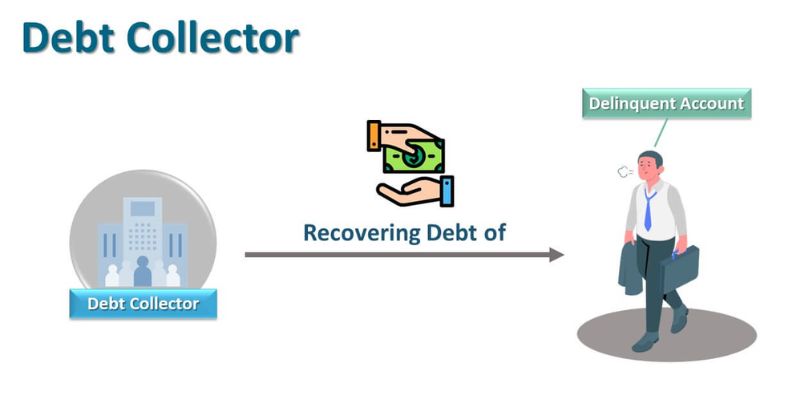Are you looking to purchase a property but don’t have the traditional requirement of a steady job? You may think this disqualifies you from the mortgage process, but you’d be wrong. It is possible to buy a home even when employment isn’t consistent or well-paying, and some strategies can help make it happen.
Read on as we explore five tips for getting approved for your mortgage without relying on regular income from a full-time job.
How To Get A Mortgage Without A Job

Have a good credit score
One of the most important factors lenders look at when deciding whether you qualify for a mortgage is your credit score. It’s also one of the few things not affected by your employment status or income level, so it’s worth ensuring it’s as high as possible before you apply for any mortgages.
Check your credit report and work to pay off any outstanding debts and raise your score. A good credit score is a great way to show lenders that you’re responsible for your financial obligations and puts you in a better position to qualify. As a bonus, having a good credit score could even help you get better interest rates and terms on any loans you take out.
If you have trouble improving your credit score, it may be worth speaking to a credit counselor who can help you make the necessary steps to boost your score. It’s also important to stay on top of any changes in your credit score, as this could affect whether or not you qualify for a mortgage. Keeping track of your credit will ensure that you get the best possible deal when applying for a loan.
Check the requirements

This is often overlooked, but it’s important to research your lender's specific requirements when it comes to getting a mortgage without a job. Some lenders may require that you have additional assets or savings that can be used as collateral for the loan, while others may not care about your employment status at all. By researching what each lender requires, you’ll be able to narrow down the ones most likely to approve your loan.
If you don’t have a strong credit score, getting someone to cosign the loan with you may be necessary. A good friend or family member willing to put their name on the line for you can be invaluable. Be sure that whoever cosigns understands they are legally responsible for the loan and that it may hurt their credit score if you fail to make your payments.
Use savings, reserve funds, or other income
Even if you don’t have a traditional job or steady income, there are still ways to maximize the money coming in each month. This could include taking on freelance gigs or side jobs, renting out rooms in your home, or using savings, reserve funds, and other income sources. Collecting all of this information and having it in one place will help you show lenders that you have a steady source of funds and can make payments on the mortgage.
When you apply for a loan, ensure you provide all the documents that demonstrate your ability to pay it back. This could include bank statements, investment portfolio summaries, tax returns, etc. Ensure these documents are up-to-date and accurate; lenders will use them to determine your eligibility.
It’s also important to note that lenders may consider alternative forms of income when looking at your application. This could include alimony, Social Security payments, or disability benefits, all of which can be used as evidence that you have the means and ability to make your mortgage payments.
Ask for help and co-sign
Asking for help and assistance from a co-signer can greatly increase your chances of getting approved for a mortgage without a job. Talking to people in your network with mortgage experiences - such as friends, family members, or colleagues - is always a good place to start. They can provide advice on the best lenders to approach or co-signers that may be willing to help.
If you have a trusted financial advisor or professional, it’s also worth asking them for guidance on the mortgage process and whether you can get approved without a job. They may have specific experience with lenders who are more lenient when approving applications from those without steady employment.
Having a co-signer on the loan is also an option for those without a job. This person will need strong credit and assets they can use as collateral, but having someone with better financial credentials to back you up can make all the difference. Be sure to choose your co-signer carefully and discuss all the risks of signing on before moving forward.
Get a non-revocable employment contract
Getting a non-revocable employment contract can be very beneficial for both employers and employees. This type of contract is designed to provide security and stability for both parties, ensuring that the employee will remain employed with the company until the end of the agreed-upon term.
A non-revocable employment contract also limits any employer’s ability to terminate the employment agreement without reasonable cause, which can provide a feeling of security for the employee.
For employers, having a non-revocable contract means they don’t have to constantly hire and train new employees. This type of employment agreement also helps protect them from legal liability if an employee files a claim against them for wrongful termination or discrimination. This type of contract can also help employers retain their best talent, as it ensures that the employees will stay with the company for the duration of the contract.
For employees, having a non-revocable employment contract means they don’t have to worry about being let go without cause or fear that their job may be at risk if there is a change in management.
FAQS
How easy is it to get a mortgage?
Getting a mortgage can be a complicated process, depending on your circumstances. Generally, you'll need good credit and enough money for a down payment to qualify for the best terms. It's also important to research lenders' specific requirements before applying for a loan.
What is the best age to take a mortgage?
It depends on your financial situation and goals. Generally speaking, the younger you are when taking out a mortgage loan, the easier it is to repay the loan in full over time. However, if you wait too long to take out a mortgage, you may face higher interest rates or the risk of not being approved for the loan due to other factors like a credit score. It's important to consider these factors when deciding the best age to take on a mortgage.
What is the length of a mortgage?
The length of a mortgage can vary depending on the lender and loan size. Generally speaking, mortgages range from 10 to 30 years in length. However, some lenders may offer shorter or longer terms depending on the circumstances. It's important to carefully read all of the details of your loan before signing any paperwork.
Conclusion
Ultimately, getting a mortgage when you don’t have a job is achievable. To make this process easier, keep these five points in mind: Building an emergency fund, obtaining alternate income sources, gathering and submitting the required documents, finding the right loan officer or lender willing to work with your financial situation, and improving your credit score. Remember that it may take some flexibility and perseverance but obtaining a mortgage without a job is possible as long as you come prepared.



